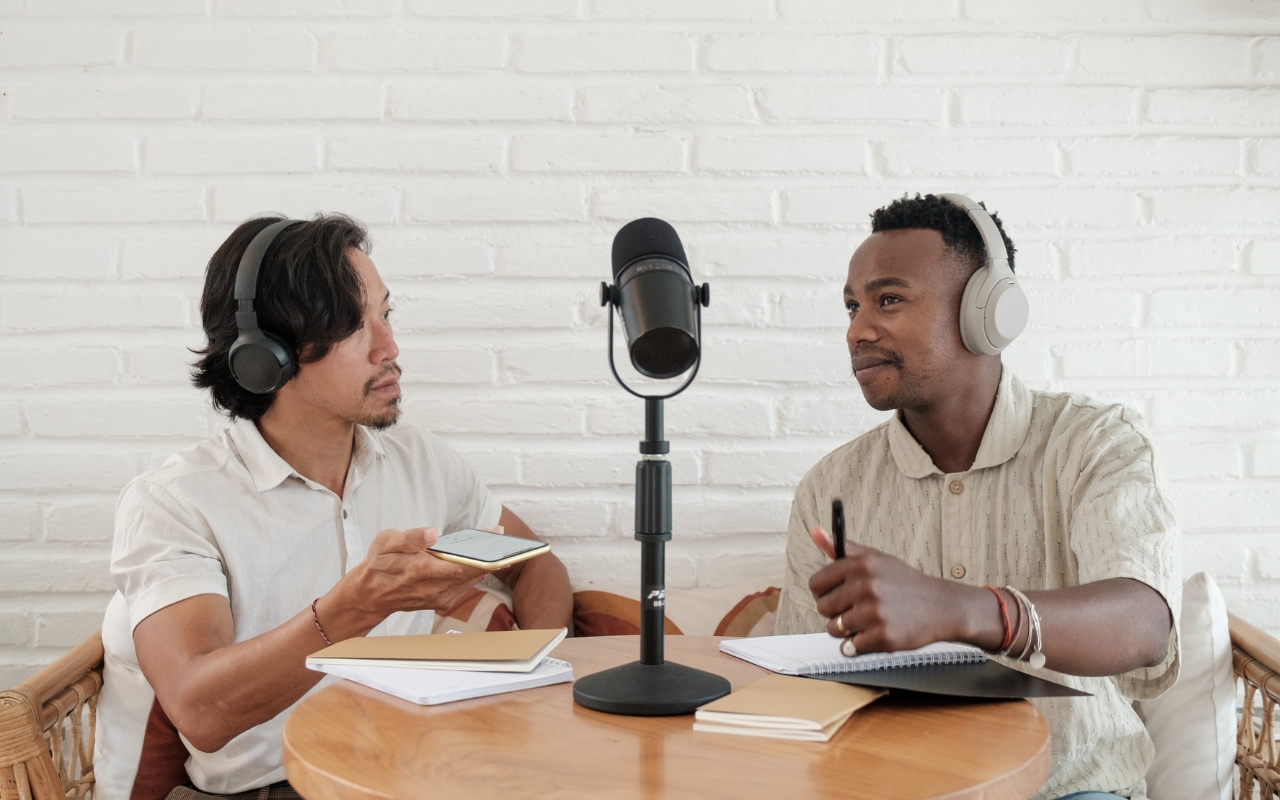In today's fast-paced society, mental health has become a significant concern. While traditional methods such as therapy and medication continue to play crucial roles, alternative mediums have emerged as powerful tools for mental health support. Audiobooks and podcasts have grown exponentially in popularity, offering accessible, versatile, and effective means to enhance mental well-being. This article will delve into the myriad ways these auditory platforms aid in reducing stress, managing anxiety, and fostering a greater sense of connection.
The surge in the consumption of audiobooks and podcasts is undeniable. According to data from Spotify’s 2022 Culture Next Report, 55% of American 18-24-year-olds turn to podcasts for answers to personal or difficult questions before even speaking with their families. This trend isn't merely coincidental; it reflects these media forms' profound impact on mental health. The privacy and intimacy that listening to audiobooks and podcasts afford, especially when using earbuds, create a unique space for listeners to explore their thoughts, emotions, and curiosities without judgment.
The Psychological Benefits of Listening
Listening to audiobooks and podcasts engages the brain in ways that traditional reading or visual media might not. Researchers at UC Berkeley have mapped the brain's response to narrative stories, finding a symmetry in semantic representation across both cerebral hemispheres during two hours of spoken narratives. Unlike past studies that saw semantic representation localized to the left hemisphere, this comprehensive research highlights the multidimensional engagement of the brain (Huth et al., 2016). When listeners immerse themselves in a story or listen to engaging content, various brain regions, including those responsible for emotions, language comprehension, and imagination, become activated.
This brain engagement offers several psychological benefits. First and foremost, it helps reduce stress. Engaging with a captivating story or a relatable podcast episode can effectively distract from daily worries. As a result, cortisol levels, a biomarker for stress, are reduced. Comedic podcasts, for instance, can trigger laughter, which activates the frontal lobe and cerebral cortex, further diminishing stress and anxiety.
Moreover, listening—especially to soothing or meditative content—promotes the release of dopamine, a neurotransmitter associated with pleasure and relaxation. This neurochemical response can be particularly beneficial for individuals suffering from anxiety or depression. Listening to meditation podcasts, for example, helps create a calm mental state, alleviating anxiety and promoting a sense of well-being.
Enhanced Connectivity and Social Bonding
One of the most profound effects of audiobooks and podcasts is their ability to create what sociologists term “parasocial interactions.” This phenomenon describes listeners' intense emotional bond with media figures, such as podcast hosts. Unlike other mediums, podcasts establish a uniquely personal connection. The vulnerability of hosts, who often share personal stories and experiences, fosters a sense of friendship and intimacy with their audience.
Monica Padman, co-host of the popular podcast “Armchair Expert with Dax Shepard,” touched on these parasocial connections at a Spotify-hosted panel at SXSW. She expressed deep personal attachment to her favorite podcast hosts, likening them to best friends. This sense of belonging and emotional connection can be therapeutic for individuals feeling isolated or lonely, providing them with a sense of companionship and understanding they might otherwise lack.
Some studies even suggest integrating podcasts directly into clinical work. According to the Journal of Mental Health Counseling, mental health professionals are exploring how these mediums can supplement traditional therapeutic interventions. By sharing personal narratives and experiences, podcast hosts can help destigmatize mental health issues and promote greater empathy and compassion.
The Flexibility and Accessibility of Audiobooks
Audiobooks offer a flexible alternative to traditional reading, making it easier for individuals to incorporate literary engagement into their busy schedules. Audiobooks transform mundane tasks into opportunities for mental enrichment, whether during a commute, a workout, or while doing household chores. This convenience allows individuals to maintain a connection with literature without sacrificing other responsibilities.
A study highlighted by the National Literacy Trust found that over 72% of regular audiobook listeners felt that these recordings helped stimulate their brains. Additionally, more than half of the respondents reported feeling more connected to the world through audiobooks. This sense of connection is particularly significant during isolation, such as the recent pandemic, where nearly 38% of listeners increased their audiobook consumption and felt the mental health benefits more acutely.
Furthermore, the auditory format of audiobooks can enhance the storytelling experience. Renowned author Neil Gaiman reflects on how hearing writers read their work aloud can provide deeper insights into the narrative. The choice of narrator plays a crucial role; a compelling voice can elevate the text, making listeners feel like they are part of the story. Conversely, a poor narrator can detract from the experience, highlighting the subjective nature of auditory engagement.
Cognitive and Time Management Benefits
The cognitive benefits of listening to audiobooks and podcasts go beyond mere stress reduction. Engaging with spoken narratives can improve listening skills, enhance vocabulary, and foster a deeper understanding of complex subjects. For individuals with visual impairments or learning disabilities, audiobooks provide an inclusive way to access literature and information.
Audiobooks and podcasts also promote time management. They allow individuals to effectively utilize “dead” time, transforming idle moments into productive and enriching experiences. Whether walking, driving, or performing routine tasks, listeners can absorb new knowledge, stay informed about current events, or enjoy a captivating story. Creative professionals often use this time to overcome creative blocks, drawing inspiration from a wide range of content.
Emotional and Cultural Enrichment
Listening to audiobooks and podcasts enriches the mind and nurtures the soul. They expose listeners to diverse perspectives, cultures, and experiences, fostering greater empathy and understanding. This cultural enrichment can be particularly impactful for those who may not have the opportunity to travel or engage with varied communities.
The emotional resonance of spoken narratives can also be profound. Audiobooks and podcasts can evoke deep emotions, from joy and laughter to sadness and introspection. This emotional engagement allows listeners to process their feelings and experiences, offering a form of therapeutic release. Hearing others' stories can sometimes validate listeners' emotions, making them feel seen and understood.
Educational Value and Lifelong Learning
Audiobooks and podcasts are valuable educational tools. They provide access to vast knowledge on virtually any subject, from history and science to personal development and wellness. These mediums offer lifelong learners a convenient way to continue their education outside traditional classroom settings.
Educational podcasts, in particular, have become an essential resource for many. They break down complex topics into digestible segments, making learning more accessible and engaging. This democratization of knowledge empowers individuals to pursue their interests and expand their horizons, regardless of their formal educational background.
Conclusion
Audiobooks and podcasts are more than just entertainment; they are powerful tools for enhancing mental health and well-being. By offering flexibility, accessibility, and a deep sense of connection, these auditory platforms provide a unique and effective way to manage stress, reduce anxiety, and foster emotional and cognitive growth. As the popularity of these mediums continues to rise, their potential impact on mental health becomes increasingly evident. Whether you're seeking solace, inspiration, or a deeper understanding of the world, the healing power of audiobooks and podcasts is undeniable.










